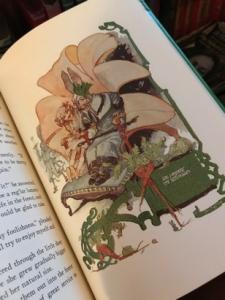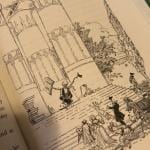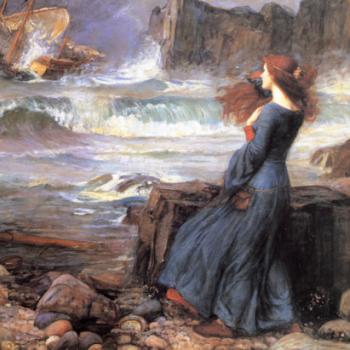 Should fans let characters go?
Should fans let characters go?
When I heard that William Shatner’s Kirk was doing one last film in Star Trek: Generations, I bought a ticket only to have the studio dishonor the character with a brutally bad ending. Yet if fans had not kept the show alive, then the best work of the original crew would never have happened. Think Star Trek II: Wrath of Khan or Star Trek IV: The Voyage Home.
Arthur Conan Doyle famously had bigger more important novels to write. His historical romances and other tales are pretty good, but Holmes was what the audience wished to read. If some of the very last Holmes stories are not so good, The Hound of the Baskervilles written after Doyle had disposed of Holmes is the best story Doyle ever wrote.
Frank Baum took a trip down the yellow brick rode and every Christmas children looked forward to a new Oz book.
Like Conan Doyle with Sherlock Holmes, Frank Baum was tired of telling Oz stories. He had other tales he wished to tell in other settings, but like Doyle, the readers would not let go. Doyle killed Holmes only to bring him back and the The Emerald City of Oz, supposed to be the last of the Oz books, was not. In the case of Oz, even Baum’s death could not end the profitable business of turning out wonderful stories. Ruth Plumly Thompson was a worthy heir and took the Oz books in a more “fairy tale” direction.
None of the Baum Oz books are well written in a literary sense, that is not their charm. In fact, charm is their charm with a few exceptions, including the first and the sixth book. His first was a stroke of genius in tapping the mythic imaginaation. The Wonderful Wizard of Oz fell into the patterns of the Odyssey, a journey home, and played with the head-heart-hand theme with strong supporting characters to Dorothy. There was a way of reading the books as an attack on the humbug of organized religion, pompous educators, and a goodly number of late Victorian targets. Nothing Baum would write would match the mythic depth of the first, though the writing improved!
Baum is delightful, not (mostly) deep. He is comforting, a bit funny, and an optimist. These are mythic stories that welcome the wireless. Recall a “balloon” was high technology in the day and Baum’s fairy land was found by one! When Baum decided to “end” Oz, he was spurred to some of his best work in his career.
The Emerald City of Oz has the best villainous machinations since the Wicked Witch of the West. The Nome King and his minions are frightful, yet Baum shoots a whimsical tour of Oz, with land after land of unserious creatures. This is not Lord of the Rings when one is asked to take talking cutlery seriously. *
Narnia was my first introduction to serious fantasy along with fairy tales from all over the world. I also loved all things Oz, because Oz was not serious. Narnia was full of longing while Oz was the stuff of day dreams. One could read an Oz book on a Saturday afternoon with satisfaction and have forgotten the plot by Sunday morning.
Emerald City gives all the Baum a child could want. Baum tried to quit, but the fans forced twice as many Oz books from the aging author! They wanted more Oz and refused anything else. This was good, since the Patchwork Girl of Oz and several other “later” tales are as good as the earlier ones. Emerald City ends up marking a middle book in the Oz series!
So what of the fans? Baum called them “An Army of Children” and described them “besieging” the postman. Still I think the readers were right: Baum was at this best in Oz. His characters became more interesting with backstory (The Tin Woodman of Oz is a Whedon-like take on romance). Since Oz is not a particularly consistent land (who can die? which animals talk?), he had all the liberty he needed.
Bad writing, lazy work, is the fault of the author. If Baum, like Doyle, sometimes did not rise to his own standard, this is not because he was pleasing the readers. The readers wanted excellence and Oz. Baum (often) delivered, sometimes he did not. So the next time you hear “fan service” disparaged, note that the writers are making an excuse for hack work. They could use constraints the way the great Russian novelists used censorship: motivations to creativity.
Here is to the fans and to writers who listen and then write well without excuse. The fans give love, the hackery is all the writer’s own. We do not ask too much, we are not tyrants, but people who know there are more stories out there. The game could still be afoot for Holmes, Kirk should still boldly go, and Oz had other improbably silly lands to discover.
The best writers knew how to get that done.













